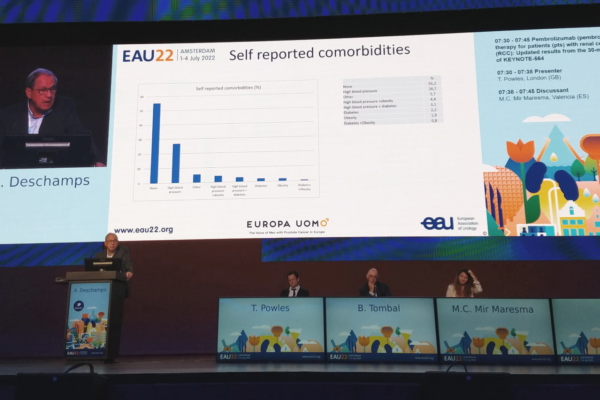Europa Uomo announces results of its second quality of life study at EAU Congress
The first results of Europa Uomo’s EUPROMS 2.0 prostate cancer quality of life study have been announced at the European Association of Urology’s congress in Amsterdam. The findings support those of the first EUPROMS study, conducted in 2020, showing that treatment with prostatectomy and radiation therapy lead to a significant loss of sexual quality of life.
The new study also shows that there are still deficiencies in shared decision making between doctors and their patients, with a third of patients saying that their doctors did not help them thoroughly weigh the different treatment options available.
And EUPROMS 2.0 also provides evidence of continuing overtreatment of prostate cancer. Men with the lowest grade of prostate cancer, ISUP 1 (Gleason 6), are still being treated with radiation therapy and surgery when active surveillance is now recommended.
André Deschamps, Europa Uomo’s immediate Past-Chairman, announced the results at a “Game Changing Session” during the EAU Congress. The findings are based on data from the EUPROMS 2.0 survey, which attracted responses from 3,571 men with prostate cancer across Europe, Canada and the United States. This was a follow-up to the original EUPROMS survey, which aimed to gauge the quality of life of men after treatment for prostate cancer.
The respondent profile was similar for both surveys, explained André Deschamps, and the vast majority of respondents had received their treatment within the past five years. Concluding on the new EUPROMS 2.0 findings, he said:
- The results confirm the findings of EUPROMS 1.0
- Any treatment other than active surveillance is related to a reduced quality of life
- Active surveillance should be the first treatment if it can be applied safely
- Healthcare professionals should use the EUPROMS results as a basis for discussing treatment options with their patients
- If treatment is needed, healthcare professionals should offer and discuss ways of maximising quality of life where possible.
More detailed results will be published shortly.
